Environmental Sustainability
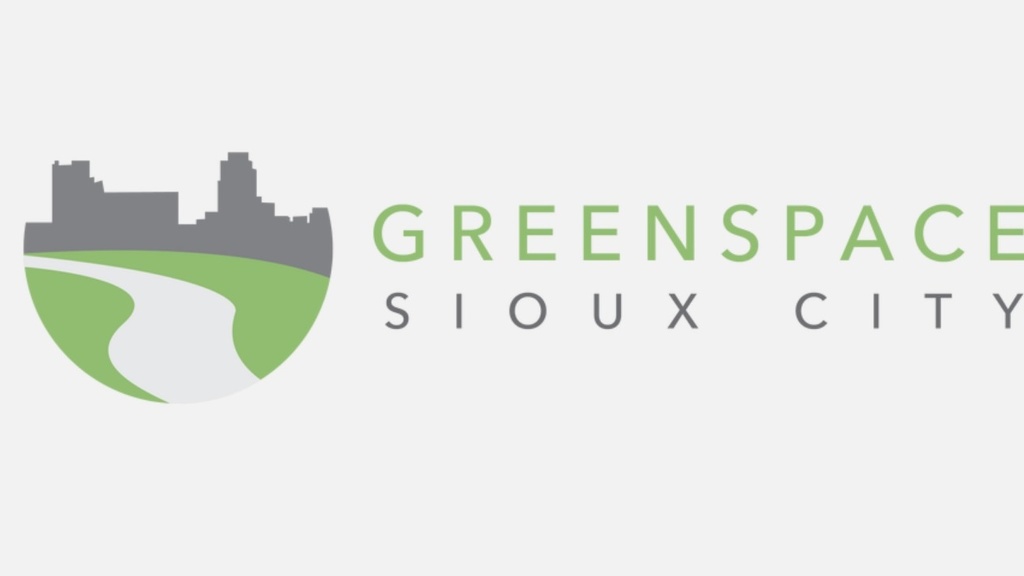
Greenspace Plan
Graduate students in the School of Urban & Regional Planning researched the following five greenspace priorities for the City of Sioux City and created recommendations on how best to increase greenspaces downtown: opportunities for adding greenspaces along sidewalks; opportunities and designs for adding a pocket park to the downtown; opportunities for green roofs and rooftop gardens; opportunities for improving soil permeability and restoration in greened areas; and opportunities for linking downtown greenspace to bike trail access points.
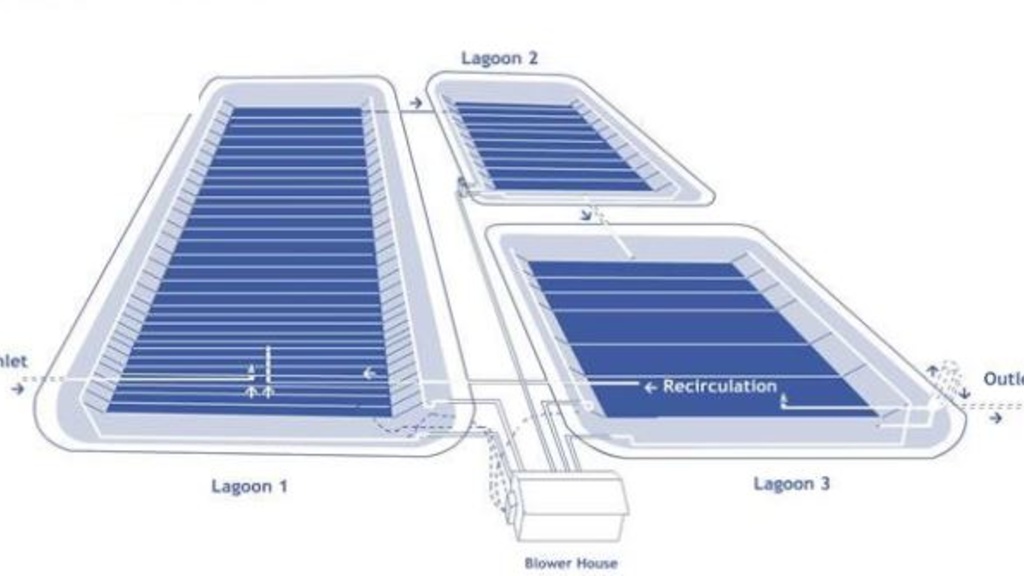
The Iowa Small Systems Waste Project
Senior engineering students researched existing commercial small-scale wastewater systems for Iowa City and designed a facility for several different kinds of these small systems to be tested for use in Iowa.
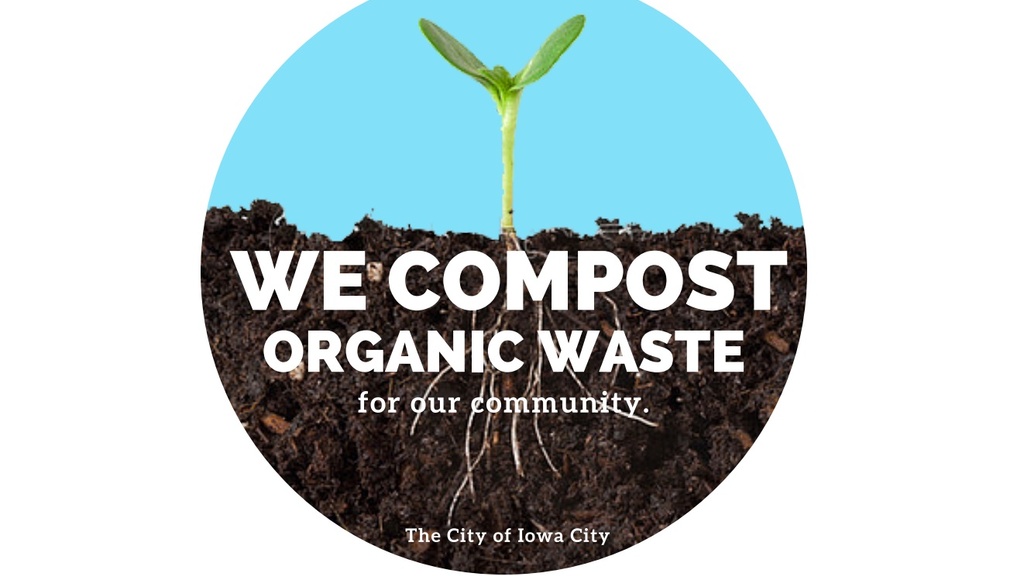
Marketing Food Waste Prevention
A senior marketing student researched food waste prevention among local businesses in Iowa City and created a communication campaign for promoting local composting and recycling efforts.
Food waste reduction is an important component of sustainability that many local Iowa City businesses are already achieving through composting and recycling strategies. Public support of such practices and the businesses who engage them can contribute to both the local economy and sustainability success.
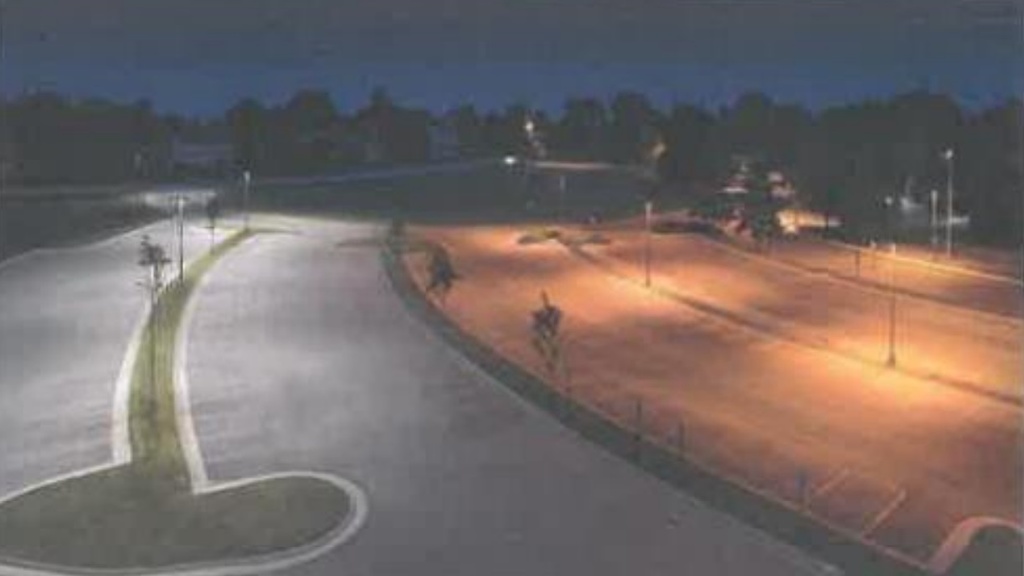
LED Streetlight Conversion
Greenhouse gas and energy reduction were identified as two major goals for 2015 in The City of Iowa City’s 2014 Sustainability Report. The City was, then, pursuing several initiatives to achieve those goals, including an agreement with MidAmerican Energy to convert all of Iowa City’s streetlights into LED fixtures. The LED fixtures are expected to last 25 times longer and operate 75 percent more efficiently than incandescent bulbs. A student from the College of Engineering assisted the City with the streetlight conversion process during the Fall 2015 semester.
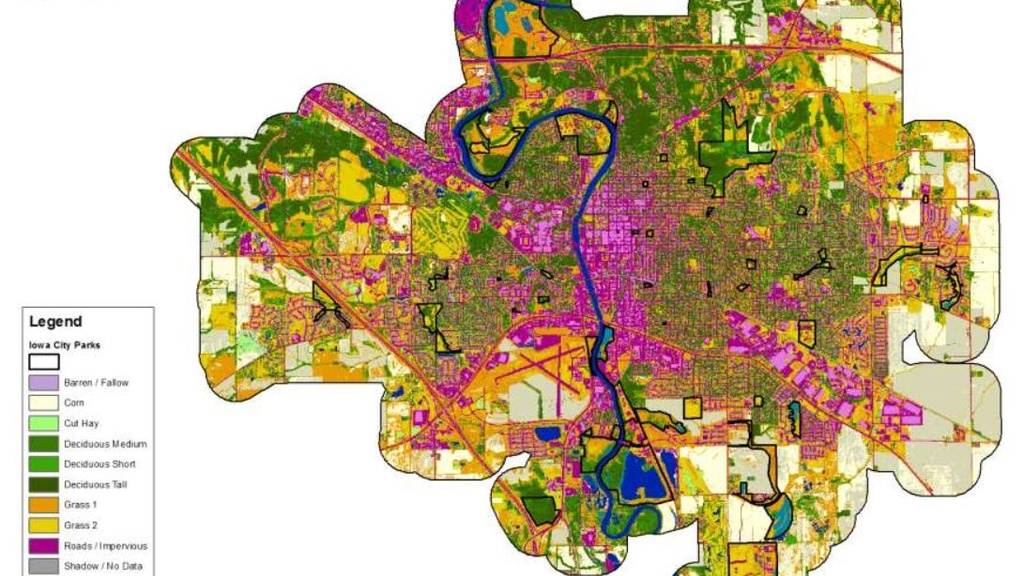
Ecosystem Services
To help the City of Iowa City continue to foster the benefits of its natural areas, students from the Department of Geographical and Sustainability Sciences conducted two research projects on the ecological services provided by the parks and open spaces in the city. The first project used hedonic pricing to research how the valuation of different kinds of open spaces contribute to the values of detached single-family homes.
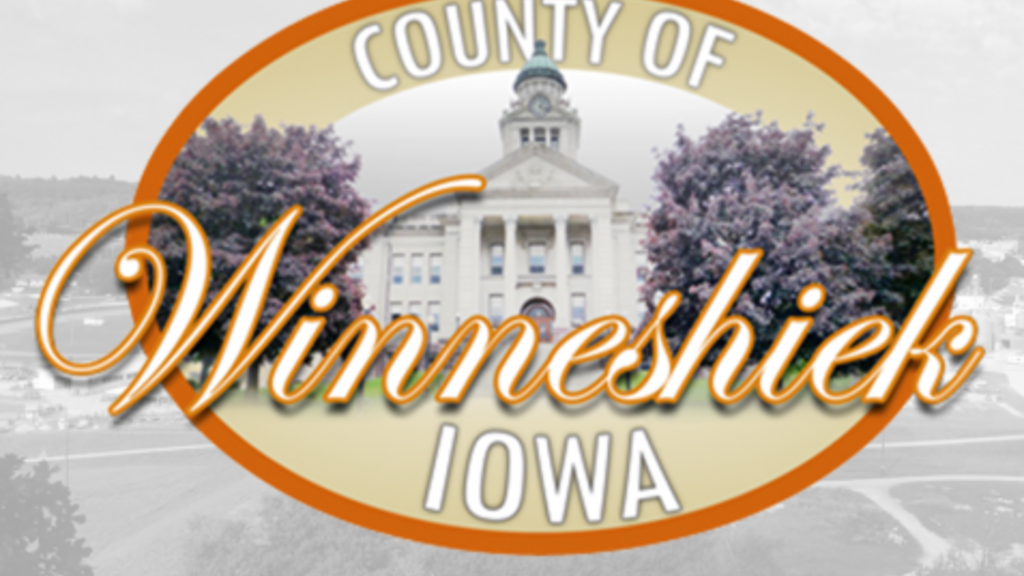
Land Cover and Conservation
Consistent with the Iowa Nutrient Reduction Strategy (INRS), Winneshiek sought to reduce phosphorus and nitrogen pollution from nonpoint sources. To achieve this goal, the County was interested in gaining information about land use and conservation practices in the area.
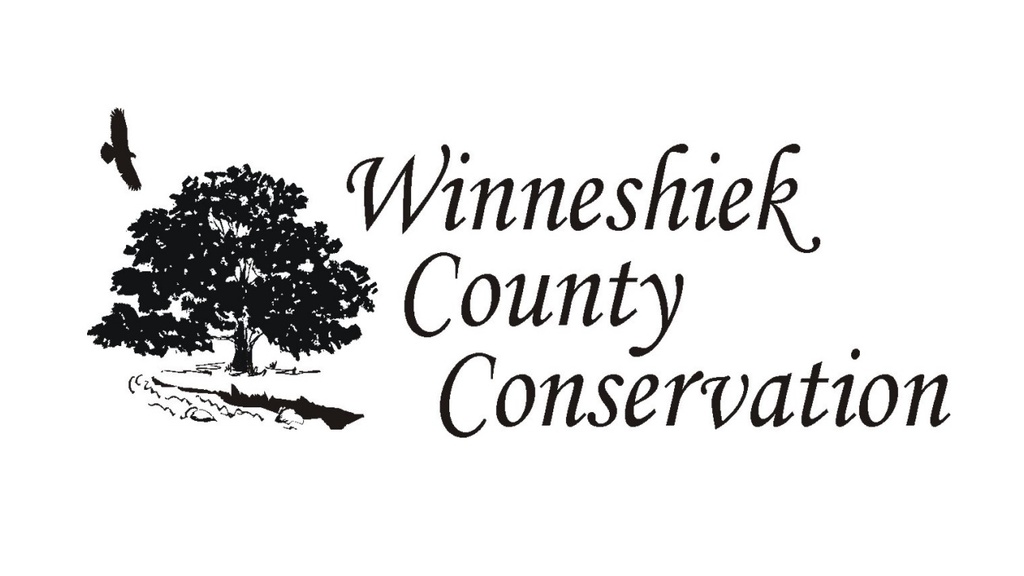
Blufflands Protection
Students in the Geographical and Sustainability Sciences program develop a methodology for mapping blufflands using Geographic Information Systems (GIS) technology.
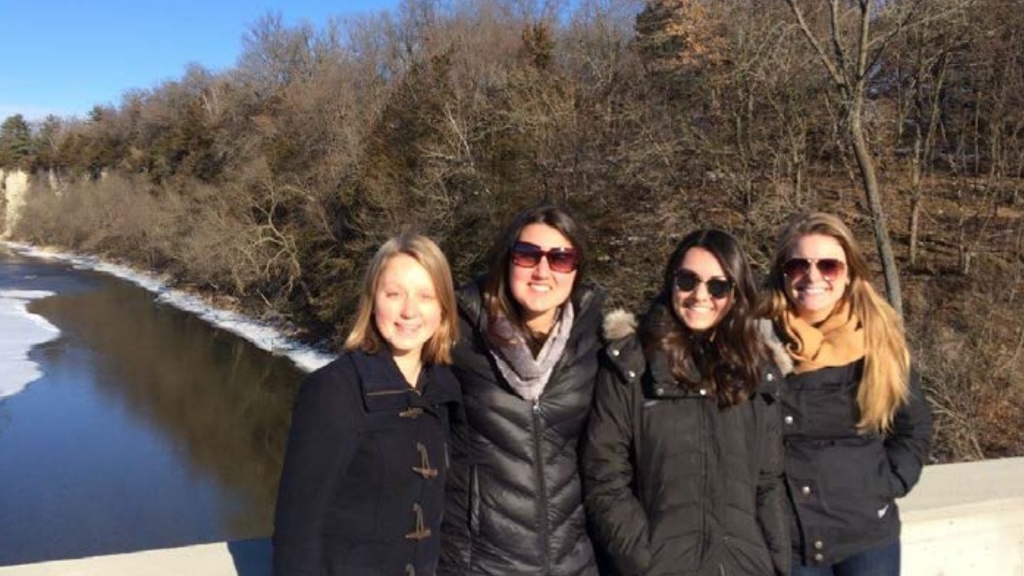
Marketing the Upper Iowa River for Sustainable Use
Students in Marketing Field Studies class in the Tippie College of Business researched these multiple uses and images of the river through focus groups and meetings with community stakeholders. Based on their findings, they developed recommendations to encourage all users to interact with and communicate about the river in a sustainable way.
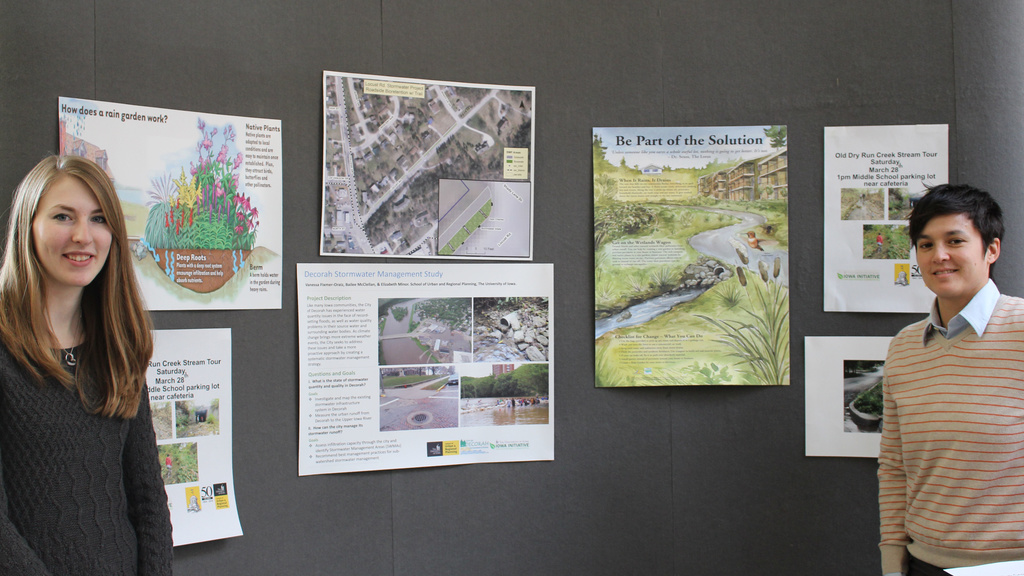
Stormwater Management and Utility Planning
Graduate students in the School of Urban and Regional Planning researched models of financing, established a budget, and developed a list of priority stormwater management projects based on their projected budgets and impacts to water quality and quantity in the community for Decorah, Iowa's implementation of the storm water management policies.
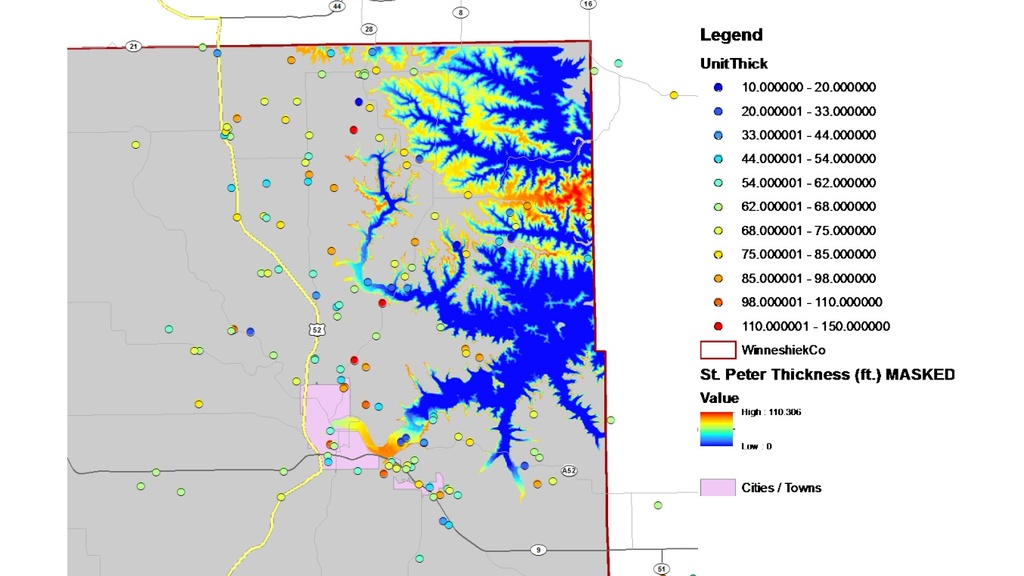
Mapping and Prediciting Potential Frac Sand Mine Locations
Researchers from the GEEMaP program, College of Engineering, and Department of Earth & Environmental Sciences collaborated to predict and map where frac sand mines may be most likely to occur in Winneshiek County if the industry enters the area.
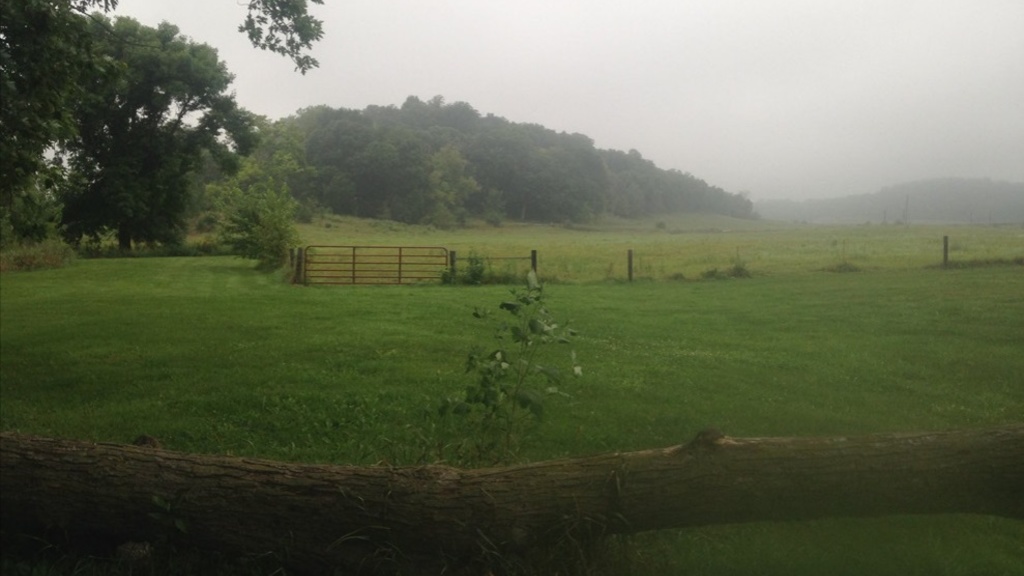
Economic Impact Study of Frac Sand Mining Industry
Winneshiek County sought to understand the possible economic impacts that the frac sand mining industry could have if it became established in the county. For this project, graduate students in the School of Urban and Regional Planning performed a comprehensive economic impact study that evaluated the short and long-term gains and losses to the county's economy that could follow from the industry’s establishment. The students assumed a single-mine scenario to contextualize mining impacts in three areas: county accounts, private accounts, and social costs.
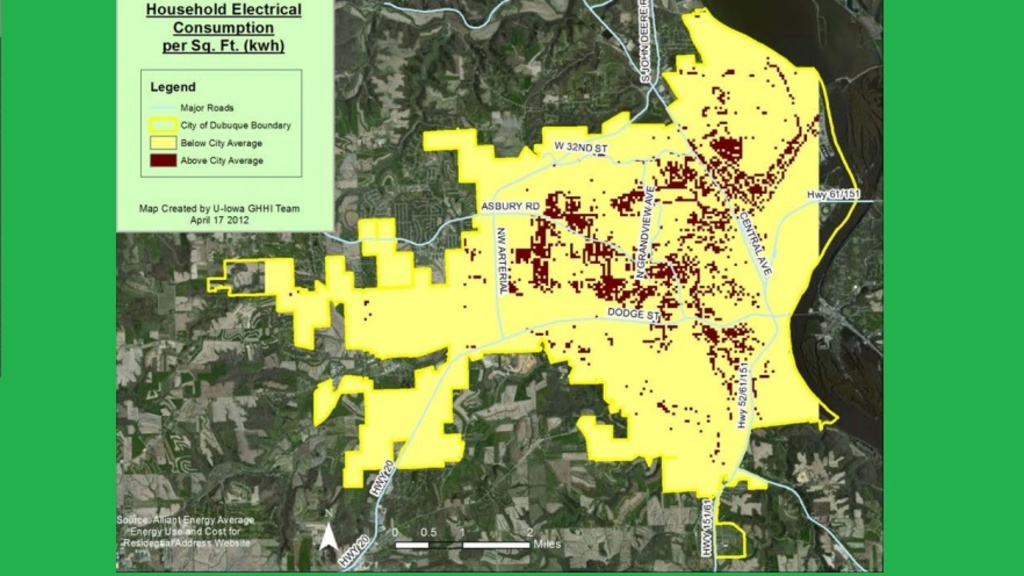
Design of the Green and Healthy Homes Program
Graduate students in the School of Urban and Regional Planning worked with city officials to provide recommendations and two tools for the City of Dubuque to expand its Green and Healthy Homes Initiative (GHHI).
The tools developed included the Priority Model and economic feasibility calculator for rental units. Other recommendations included strategies to engage renters and landlords; innovative funding; interdepartmental cooperation building; and participant engagement and outreach.